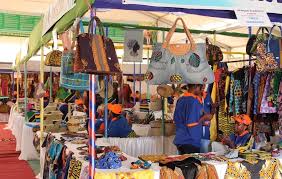Vendors at the ongoing Abuja International Trade Fair (AITF) have expressed mixed feelings over patronage, noting that while customer turnout has been low in the opening days, they remain optimistic about improved sales as the fair progresses.
The fair, which opened on September 25 and will run until October 6, is themed “Sustainability, Consumption, Incentives and Taxation.”
Mrs. Veronica Aboagye, a trader from Ghana, lamented the low sales but expressed hope that patronage would pick up before the close of the fair.
“I am calling on Nigerians to patronise me so that my products and services are sold. I do not want to go back with my products,” she said.
A participant from China, Mr. Zhang Wei, shared similar sentiments, expressing confidence in Nigerians’ reputation as strong business partners.
“I am not discouraged in any way because I trust Nigerians. Nigerians are good business people and they will surely turn out,” he said.
For some exhibitors, the fair is not only about sales but also about building networks. Mr. Joseph Asogwa, a local participant, said the event provides a platform to establish partnerships, conduct market research, and evaluate competitor activities.
“My aim is to establish contacts with reliable business people who can enhance my business and also engage new customers. Patronage is still low, but the fair has just started, and there is a week to go,” he noted.
Meanwhile, the President of the Abuja Chamber of Commerce and Industry (ACCI), Chief Emeka Obegolu, urged Nigerians to support the fair as part of efforts to strengthen local businesses and drive economic growth.
He disclosed that the Chamber would use the platform to inaugurate the Buy Africa, Build Africa (BABA FEST) initiative, designed to promote African products and services locally and globally.
“BABA FEST is a call to action for Africans to trade with Africa, invest in Africa and build Africa. It will celebrate Africa’s creativity, talent and entrepreneurial energy,” Obegolu said.
He added that this year’s edition of the fair is bringing together policymakers, industry leaders, entrepreneurs, and development partners to examine how consumption patterns, incentives, and taxation can be aligned to drive responsible production, investment, and environmental stewardship, in line with the United Nations Sustainable Development Goals (SDGs).





